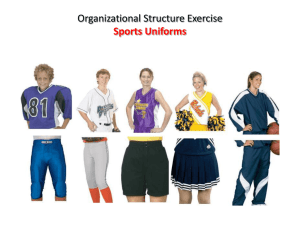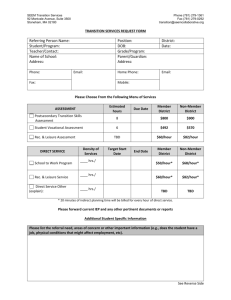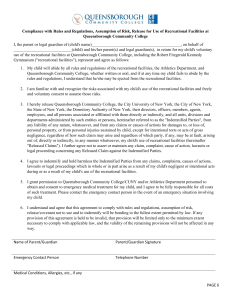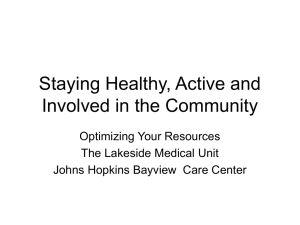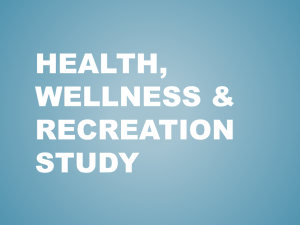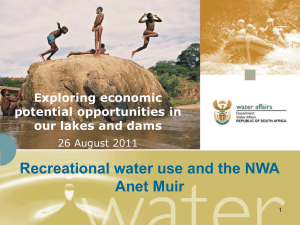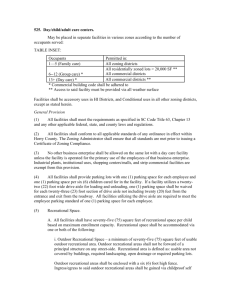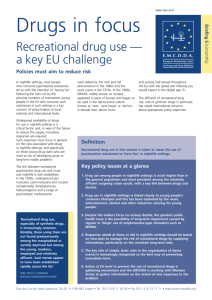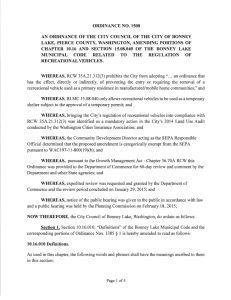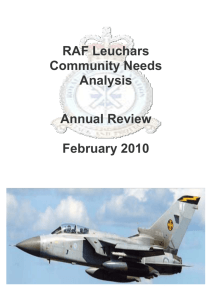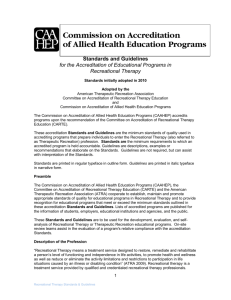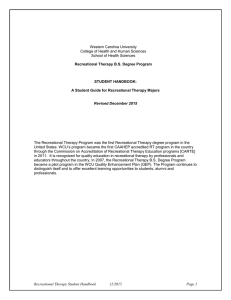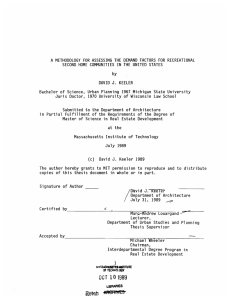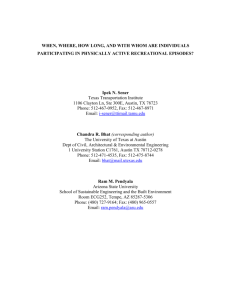Technical Standards Form - Western Carolina University
advertisement
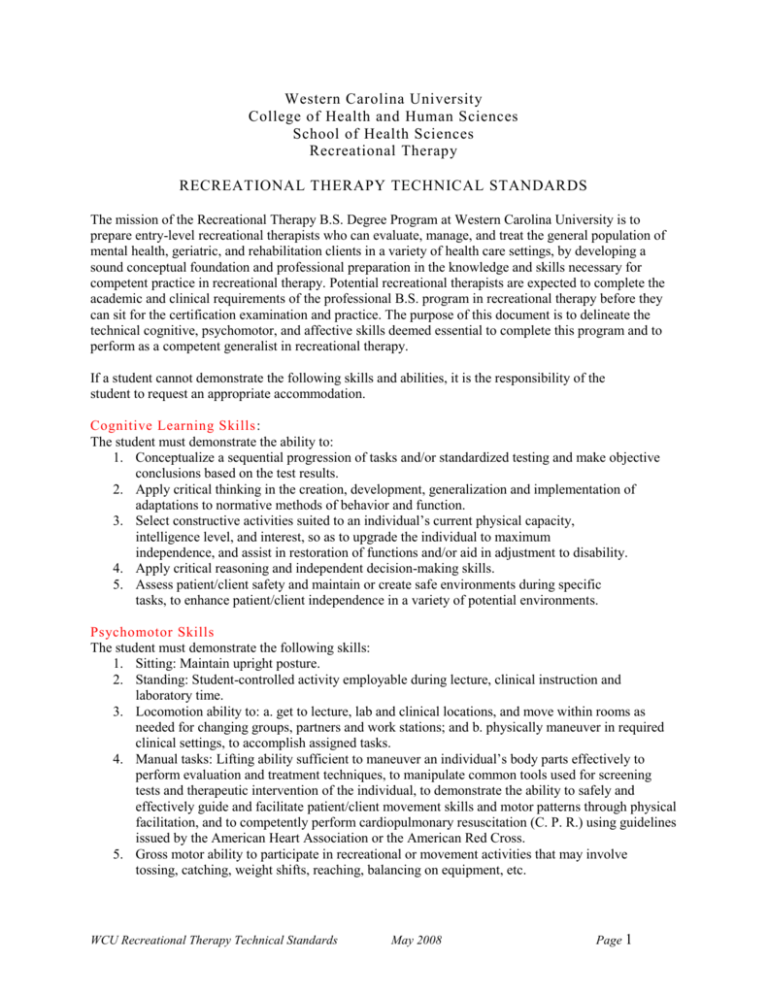
Western Carolina University College of Health and Human Sciences School of Health Sciences Recreational Therapy RECREATIONAL THERAPY TECHNICAL STANDARDS The mission of the Recreational Therapy B.S. Degree Program at Western Carolina University is to prepare entry-level recreational therapists who can evaluate, manage, and treat the general population of mental health, geriatric, and rehabilitation clients in a variety of health care settings, by developing a sound conceptual foundation and professional preparation in the knowledge and skills necessary for competent practice in recreational therapy. Potential recreational therapists are expected to complete the academic and clinical requirements of the professional B.S. program in recreational therapy before they can sit for the certification examination and practice. The purpose of this document is to delineate the technical cognitive, psychomotor, and affective skills deemed essential to complete this program and to perform as a competent generalist in recreational therapy. If a student cannot demonstrate the following skills and abilities, it is the responsibility of the student to request an appropriate accommodation. Cognitive Learning Skills: The student must demonstrate the ability to: 1. Conceptualize a sequential progression of tasks and/or standardized testing and make objective conclusions based on the test results. 2. Apply critical thinking in the creation, development, generalization and implementation of adaptations to normative methods of behavior and function. 3. Select constructive activities suited to an individual’s current physical capacity, intelligence level, and interest, so as to upgrade the individual to maximum independence, and assist in restoration of functions and/or aid in adjustment to disability. 4. Apply critical reasoning and independent decision-making skills. 5. Assess patient/client safety and maintain or create safe environments during specific tasks, to enhance patient/client independence in a variety of potential environments. Psychomotor Skills The student must demonstrate the following skills: 1. Sitting: Maintain upright posture. 2. Standing: Student-controlled activity employable during lecture, clinical instruction and laboratory time. 3. Locomotion ability to: a. get to lecture, lab and clinical locations, and move within rooms as needed for changing groups, partners and work stations; and b. physically maneuver in required clinical settings, to accomplish assigned tasks. 4. Manual tasks: Lifting ability sufficient to maneuver an individual’s body parts effectively to perform evaluation and treatment techniques, to manipulate common tools used for screening tests and therapeutic intervention of the individual, to demonstrate the ability to safely and effectively guide and facilitate patient/client movement skills and motor patterns through physical facilitation, and to competently perform cardiopulmonary resuscitation (C. P. R.) using guidelines issued by the American Heart Association or the American Red Cross. 5. Gross motor ability to participate in recreational or movement activities that may involve tossing, catching, weight shifts, reaching, balancing on equipment, etc. WCU Recreational Therapy Technical Standards May 2008 Page 1 6. Small motor/hand skill usage ability to: a. legibly record/document evaluations, patient care notes, referrals, etc. in standard medical charts in hospital/clinical settings in a timely manner and consistent with the acceptable norms of clinical settings; b. demonstrate or complete activities or tests with adequate degree of fine motor dexterity; and c. legibly record thoughts for written assignments or tests. 7. Visual acuity to: a. Read patient/client charts or histories in hospital/clinical setting; and b. observe even the slightest aberrations of patient/client motor performance during tasks/tests. 8. Hearing or ability to receive and: a. effectively respond to oral requests/instructions from patients and team members; and b. interpret the language used to communicate lectures, instructions, concepts, narratives, questions and answers. 9. Communication ability to: a. effectively communicate with instructors, peers, and team members; and b. articulate detailed instructions to patients, caretakers, family or other clinical personnel. 10. Self care ability to: a. maintain general good health and self care in order not to jeopardize the health and safety of self and individuals with whom one interacts in the academic and clinical settings; and b. arrange transportation and living accommodations for/during off-campus clinical assignments to foster timely reporting to classroom and clinical center. Affective learning skills The student must be able to: 1. Demonstrate appropriate, affective behaviors and mental attitudes to ensure the emotional, physical, mental, and behavioral safety of the patient/client in compliance with the ethical standards of the American Therapeutic Recreation Association. 2. Sustain the mental and emotional rigors of a demanding educational program in recreational therapy that includes academic and clinical components that occur within set time constraints, and often concurrently. 3. Acknowledge and respect individual values and opinions in order to foster harmonious working relationships with colleagues, peers, and patients/clients. Check One Below: I certify that I have read and understand the technical standards for selection listed above and I believe to the best of my knowledge that I can meet each of these standards without accommodation. I certify that I have read and understand the technical standards for selection listed above and I believe to the best of my knowledge that I can meet each of these standards with accommodation. Should I feel I require accommodation to meet these standards, I will contact Kimberly Marcus at (828) 227-7234 (Email:kmarcus@email.wcu.edu) to determine what accommodations may be available. I understand that if I am unable to meet these standards with or without accommodations, I will not be admitted into the program. Signature of RT Major_____________________________________ Date___________________ Printed Name of RT Major_________________________________________________________ WCU Recreational Therapy Technical Standards May 2008 Page 2
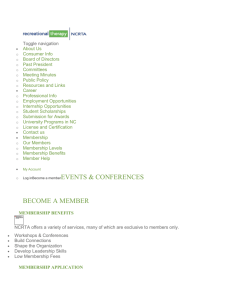
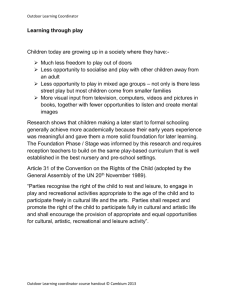
![[Share-My-Toys Membership] Marketing Plan](http://s2.studylib.net/store/data/005475303_1-5c5fcecf250fc9c92c1a18cc8f242409-300x300.png)
